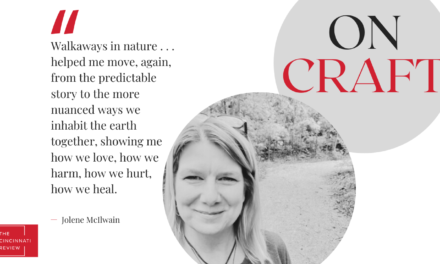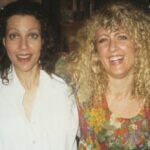
Associate Editor Lisa Low: For many of us who write and publish in mostly one genre—the one we gained some formal training in through workshops, often the one we grew up writing—starting a secondary genre can feel all the more intimidating. As a poet who, after taking a fiction workshop unofficially called Fiction for Babies, didn’t do anything with my work from the class out of fear of the different revision process, I was curious about how multigenre writers think about their craft. I asked CR contributors Cindy Juyoung Ok, SJ Sindu, Philip Metres, and Kathryn Nuernberger to share how they’ve experienced working across genres.
Cindy Juyoung Ok from miCRo, who writes both poems and stories, on genres’ histories and reading contextually: Reading within, between, and against genres seems most critical to writing in multiple genres. Such personal study brings about more connection than categorization and renders the logic of language more and more elastic. Like political parties or market corrections, genre cannot be separated from capital, from present expectation and past archives, and to understand that there is nothing inherently essential about any one lens of characterization.
The histories of genres are hugely significant in their societal roles. The novel has often had a nationalist function, for example, while oral and written poetry are remnants of two separate spheres of existence in many places, whether by gender or by class. Reading through literary generations of pattern and procedure and in translation helps connect writing to various social, cultural, and political contexts and their impacts.
SJ Sindu from miCRo, who writes fiction, literary nonfiction, and poetry, on the importance of teachers and what one genre has taught her about the other: I really appreciate that I’ve had great teachers. I mostly write in fiction, but I had a wonderful nonfiction teacher in a professor, Joy Castro, and a great poetry teacher in my partner, Geoff Bouvier. There’s only so much I can learn by reading. Their guidance was essential to me learning the contours of an unfamiliar genre.
Learning poetry taught me to pay closer attention to language in my prose, and to be comfortable with leaps and gaps, inviting the reader in to create meaning. Fiction taught me how to play with narrative in my nonfiction.
I don’t see the genres as that separate, to be honest. I think writing is writing, and they all feed into one another.
Philip Metres, who has an essay forthcoming in Issue 18.2, on the limitations of poetry: As a poet, I’d always ascribed to the notion, expressed by Rilke, that poetry should contain the whole of life. Or rather, that poems were all I needed to speak my piece. As I neared forty, I began writing short prose—a sort of poetry midlife crisis (as opposed to the chronic existential crises that poets tend to like fires). I kept seeing how little of my life was entering into my writing—mundanity repels the lyric, perhaps.
In particular, as I worked on a book of poems about my year in Russia (Pictures at an Exhibition), I realized how many wild moments in that experience repelled my attempts to tame them into poems. Or as Alexander Pushkin—a poet who himself turned to prose, sardonically writes in Eugene Onegin:
The years incline one to dry prose
They chase out playful verse. Ah, those
Sweet rhymes. It pains me to confess
I court them lazily—and less.
I suppose I saw my youthful arrogance about poetry tempered by time and humility. I’ve always longed for storytelling, for essaying, and now, outside the bounds of the poem’s margin, I have a bit more space to explore it, even luxuriate in it.
Kathryn Nuernberger, who has three flash essays forthcoming in Issue 18.2, on using poetic strategies in literary nonfiction, and vice versa: I love working in multiple genres because that flexibility gives me so many different strategies for affecting my readers. For example, I love borrowing poetic forms, like the sonnet or the pantoum or the ode, to use in a piece of prose nonfiction. Those forms have rhetorical elements as well as lyrical repetitions, and I find it works really well to keep readers on their toes by surprising them with poetic repetitions in a piece they expect other things from. Similarly, I love writing in a very direct and conversational tone in my poetry, in part because readers come to poetry expecting something more lyrical. Writing in prosaic fashion inside a poem is a way to highlight the elegance and beauty in everyday speech and everyday moments.
Besides reading more work in your secondary genre or taking a class, here are some ideas/activities to try, inspired by their insights:
- Choose a formal strategy from your primary genre and work it into your secondary genre, like Nuernberger. You might try breaking lines or using anaphora in a prose piece, keeping intact as many aspects of the original strategy as you want (former Editorial Assistant Marianne Chan has some wonderful prose pantoums that utilize this strategy).
- Try writing about the same thing in two or three genres, or take an already written piece and write a version in another genre. What do the versions offer differently from each other? If it makes sense, try merging the two pieces and see what happens.
- Read work by other multigenre writers. How does Alexander Chee’s approach to fiction differ from his nonfiction, and where do they intersect? How about Paisley Rekdal’s poetry vs. nonfiction?
- The play aspect of writing can also help jump-start working in a new genre. Lynda Barry’s What It Is, for example, is a great resource that suggests drawing as a way into the writing process.











